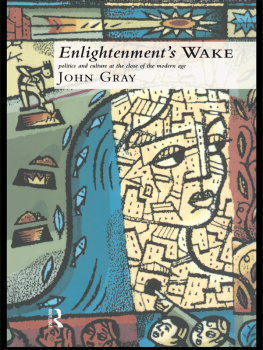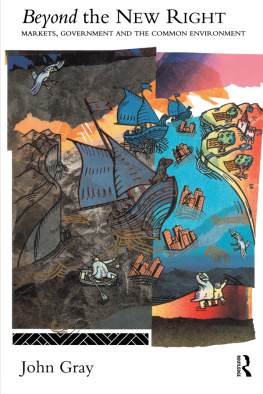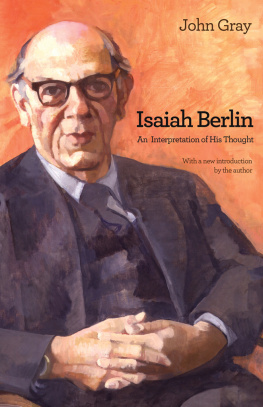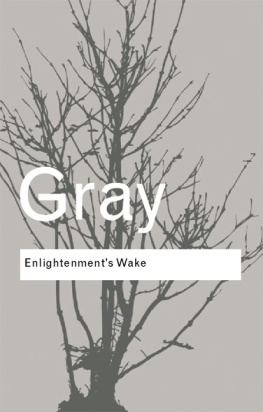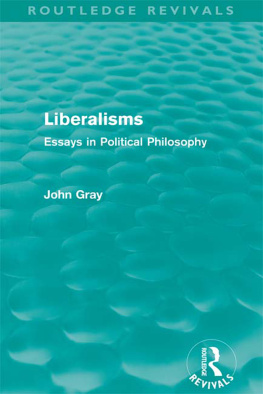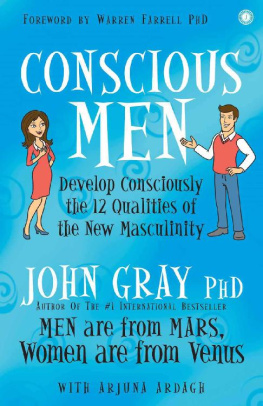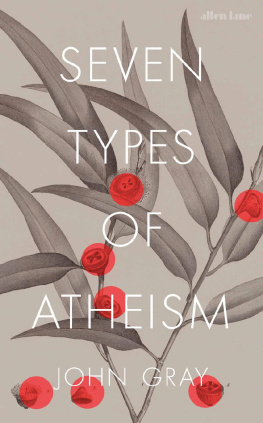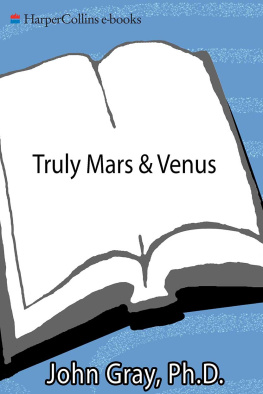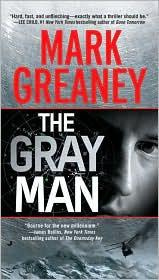Enlightenments wake
Enlightenments wake
Politics and culture at the close of the modern age
John Gray
First published 1995
by Routledge
11 New Fetter Lane, London EC4P 4EE
This edition published in the Taylor & Francis e-Library, 2005.
To purchase your own copy of this or any of Taylor & Francis or Routledges collection of thousands of eBooks please go to www.eBookstore.tandf.co.uk.
Simultaneously published in the USA and Canada
by Routledge
29 West 35th Street, New York, NY 10001
First published in paperback 1997
1995 John Gray
All rights reserved. No part of this book may be reprinted or reproduced or utilized in any form or by any electronic, mechanical, or other means, now known or hereafter invented, including photocopying and recording, or in any information storage or retrieval system, without permission in writing from the publishers.
British Library Cataloguing in Publication Data
A catalogue record for this book is available from the British Library
Library of Congress Cataloguing in Publication Data
A catalogue record for this book is available from the Library of Congress
ISBN 0-203-45063-9 Master e-book ISBN
ISBN 0-203-45690-4 (Adobe eReader Format)
ISBN 0-415-12475-1 (hbk)
ISBN 0-415-16335-8 (pbk)
Preface
In this book a train of thought developed in my earlier books, Liberalism: Essays in Political Philosophy, Post-liberalism: Studies in Political Thought and Beyond the New Right: Markets, Government and the Common Environment, is brought to a conclusion. In Liberalisms, I considered the search for foundations within liberal thought, examined the various strategies of argument in which that search had been embodied, and concluded that all of themincluding those I had myself pursuedended in failure. Liberalisms concluded on a sceptical note, in that it suggested that all foundationalist versions of liberalism were bound to fail, but said little as to what then became of liberalism, or how liberal practice was best to be conceived. In Post-liberalism, I tried to remedy this defect, arguing more positively for an historicist understanding of liberal practice in which the central institutions of liberal civil society were theorized as being generally appropriate vehicles for the protection and enhancement of human well-being in the circumstances of the late modern period, but the universalist claims of doctrinal liberalism were firmly rejected. The subject matter of Beyond the New Right was the capture of Western conservatism by a species of paleo-liberalism whose intellectual credentials were slight, and which in political practice was likely to prove self-defeating. In that book, I attacked the political thought of the New Right for its fundamentalist conception of market institutions and its hubristic neglect of the human need for common life. My argument in that book ended with a defence of traditional conservatism, qualified by concerns about environmental stability and integrity suggested by Green thought. The argument of Beyond the New Right was a development of that of Post-liberalism, in that it suggested that the historic inheritance of liberal institutions and practice was endangered, not as hitherto by left-liberal policy and ideology, but by the market fundamentalism sponsored by the New Right.
In Enlightenments Wake a decades thinking about liberalism, its grounds, scope and limits, is completed. Against the position adopted at the end of Beyond the New Right, I argue here, most comprehensively and systematically in .
In the last and longest chapter, which has been written for this volume, I argue that all schools of contemporary political thought are variations on the Enlightenment project, and that thats project, though irreversible in its cultural effects, was self-undermining and is now exhausted. Fresh thought is needed on the dilemmas of the late modern age which does not simply run the changes on intellectual traditions whose matrix is that of the Enlightenment. This is so, in part, because some of our dilemmas issue from aspects of the Enlightenment itselfin particular its assault on cultural difference, its embodiment of Western cultural imperialism as the project of a universal civilization, and its humanist conception of humankinds relations with the natural world. This last element of the Enlightenment has been transmitted even to cultures which have modernized without Westernizing, and constitutes the Wests only truly universal inheritance to humankind, which is nihilism. Because this condition has its roots in ancient and even primordial Western traditions, there can be no question of curing the disorders of modernity by a return to tradition. Nor does the stance of post-modernism, in which the emancipatory project of the Enlightenment is asserted incongruously from within the perspective of a critique of its cultural ground in the modern world-view, begin to plumb the depth of our condition. I try to open up a new path of thinking on these questions in the last chapter of this book.
I am grateful to the directors and staff of the Social Philosophy and Policy Center, Bowling Green, Ohio, where part of the work on some of the chapters that make up this book was done, for their support. I am indebted to the Principal and Fellows of my College for periods of sabbatical leave in which I was able to pursue the thoughts about which I have written here.
John Gray
Jesus College, Oxford
September 1994
Acknowledgements
is published for the first time in this volume.
1
Against the new liberalism
It is a commonplace that political philosophy was reborn in 1971. In the interwar period, and then again for a quarter of a century after the Second World War, we are told, scepticism about the subject itself had inhibited any treatment of its fundamental questions that was systematic and comprehensive and, above all, that issued in rationally compelling principles for the evaluation of political institutions and the guidance of political conduct. The climate of opinion in general philosophyas expressed in positivist accounts of meaning, emotivism in moral theory and the broader influence of the ordinary language philosophiesseemed to have rendered hopeless the projects of political philosophers working in an older and grander tradition that encompassed Aristotle and John Stuart Mill. It seemed to suggest that the most that could reasonably be hoped for was a succession of exercises in the analysis of conceptsthat is to say, armchair investigations of recent and local uses of words which derived whatever interest or authority they possessed from an appeal to the linguistic and moral intuitions, not of the words users, but of philosophers in their armchairsof the sort undertaken in 1965 in Brian Barrys Political Argument.
Whatever else may be questionable in the conventional wisdom, it is sound in its judgement that we were spared the dismal prospect of political philosophy coming under the influence of an anachronistic methodology of conceptual analysis by the publication in 1971 of John Rawlss A Theory of Justice, in which the classical enterprise of the subject was resumed in an uncompromising and architectonic fashion. Nor can it sensibly be denied that political philosophy since the early 1970s has beenat least in the English-speaking worldin very substantial part a commentary on Rawlss work. It remains very doubtful that Rawlss work has revived the enterprise of political philosophy in anything resembling its traditional forms. Indeed, it is arguable that the tradition of liberal theorizing it inaugurated has done little more than articulate the prejudices of an Anglo-American academic class that lacks any understanding of political life in our agean age distinguished by the collapse of the Enlightenment project on a world-historical scale. Because political philosophy in the Anglo-American mode remains for the most part animated by the hopes of the Enlightenment, above all by the hope that human beings will shed their traditional allegiances and their local identities and unite in a universal civilization grounded in generic humanity and a rational morality, it cannot even begin to grapple with the political dilemmas of an age in which political life is dominated by renascent particularisms, militant religions and resurgent ethnicities. As a result, the main current in political philosophy, which remains wedded to the Enlightenment project in the particularly uncompelling form of a species of eviscerated Kantian liberalism, has condemned itself to political nullity and intellectual sterility. Political philosophy may have been reborn in 1971, but it was a stillbirth.

